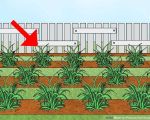Why Reducing Lawn Chemicals is Important
As a homeowner, I’ve always dreamed of having a lush, green lawn, but I never realized the negative impact that using conventional lawn chemicals could have on the environment and my health. From the harmful effects on local wildlife to the potential long-term damage to the soil and water systems, these chemicals can have lasting consequences. That’s when I decided to make a change and explore organic solutions to lawn care. Not only is it possible to achieve a healthy, vibrant lawn without relying on harsh chemicals, but it’s also a more sustainable and environmentally friendly choice.
What Are Lawn Chemicals and How Do They Work?
Lawn chemicals typically refer to pesticides, herbicides, fungicides, and fertilizers that are commonly used to maintain the appearance of a lawn. These chemicals are designed to kill pests, prevent weed growth, and boost grass health. While they may seem effective in the short term, they often come with hidden risks. Pesticides and herbicides, for example, can harm beneficial insects like bees and earthworms, and fertilizers can contaminate local water supplies.
The Hidden Risks of Chemical Lawn Care
After years of relying on chemical products for my lawn care, I began noticing a decline in the health of local wildlife and the soil. Birds and bees were disappearing, and the soil in my yard became compacted and less fertile. What was once a thriving, healthy ecosystem began to suffer. As I researched, I found that chemical lawn care can lead to soil degradation, pollute nearby water sources, and even cause health problems for humans and pets due to exposure to harmful chemicals.
Switching to Organic Lawn Care: A Healthier Alternative
Transitioning to organic lawn care was one of the best decisions I’ve made for my home and the environment. Organic lawn care focuses on improving soil health, using natural fertilizers, and promoting biodiversity without relying on synthetic chemicals. While it may take a bit more time and effort to establish, the long-term benefits are worth it.
Benefits of Organic Lawn Care
- Improved Soil Health: Organic practices enhance soil structure and nutrient levels, making your lawn more resilient and better able to fight off pests and diseases naturally.
- Reduced Environmental Impact: By using organic methods, you help reduce pollution and protect local ecosystems, including water sources, wildlife, and plant life.
- Better for Your Health: Organic lawns are free from harmful chemicals, making them safer for children, pets, and anyone who enjoys spending time outside.
- Cost Savings: While organic products may seem expensive at first, they are often more cost-effective in the long run because they promote sustainable growth and reduce the need for constant treatments.
Making the Transition: Steps for Reducing Lawn Chemicals
Making the switch to organic lawn care doesn’t have to be overwhelming. Here are some practical steps I took to reduce the use of chemicals in my lawn care routine:
1. Start by Testing Your Soil
Before making any changes, it’s essential to understand the current state of your lawn’s soil. A soil test will help determine if your lawn is lacking any nutrients, and what specific organic amendments it needs. I tested my soil and discovered that it was low in nitrogen, so I was able to add organic compost to naturally boost nutrient levels.
2. Focus on Soil Health
Healthy soil is the foundation of a healthy lawn. I began incorporating organic matter such as compost and mulch into my lawn to improve soil fertility and structure. This not only nourishes the grass but also helps to retain moisture and encourage beneficial microorganisms.
3. Use Organic Fertilizers
Instead of chemical fertilizers, I started using organic fertilizers made from natural ingredients like bone meal, fish emulsion, and seaweed. These provide slow-release nutrients that help my lawn grow without the risk of burning the grass or polluting the environment.
4. Encourage Beneficial Insects
Rather than relying on pesticides, I focused on encouraging beneficial insects like ladybugs, predatory beetles, and earthworms. These creatures help keep harmful pests in check without the need for toxic chemicals. I also planted a variety of flowers and plants that attract pollinators to support the local ecosystem.
5. Address Weeds Naturally
Weeds can be a challenge, but there are natural ways to keep them at bay. I started manually pulling weeds and using organic mulches to suppress weed growth. I also applied vinegar solutions to spot-treat weeds without harming the grass.
6. Water Wisely
Over-watering can promote the growth of pests and fungi. I made the effort to water my lawn deeply but infrequently to encourage deep root growth. This not only saves water but also helps the lawn become more drought-resistant and less susceptible to diseases.
Success Stories: How Organic Lawn Care Transformed My Yard
Switching to organic lawn care didn’t just improve the health of my lawn—it transformed the entire environment around my home. One of the most noticeable changes was the return of bees, butterflies, and birds to my yard. It was truly heartwarming to see nature thriving again in my backyard. My lawn also became more resilient to droughts, and I no longer had to worry about using harmful chemicals around my family and pets.
Challenges I Faced During the Transition
While organic lawn care offers many benefits, the transition wasn’t without its challenges. Initially, I struggled with patchy areas and weeds. But as I continued to invest time and effort into improving soil health and using natural solutions, I began to see the results. The key is patience—organic lawn care takes time, but the results are well worth the wait.
Join the Organic Lawn Care Movement
If you’re ready to make the switch to organic lawn care, there are plenty of resources available to help you get started. From local organic lawn care services to online guides and communities, you don’t have to go through this transition alone. Embrace organic lawn care and start enjoying a healthier, more sustainable lawn today!








